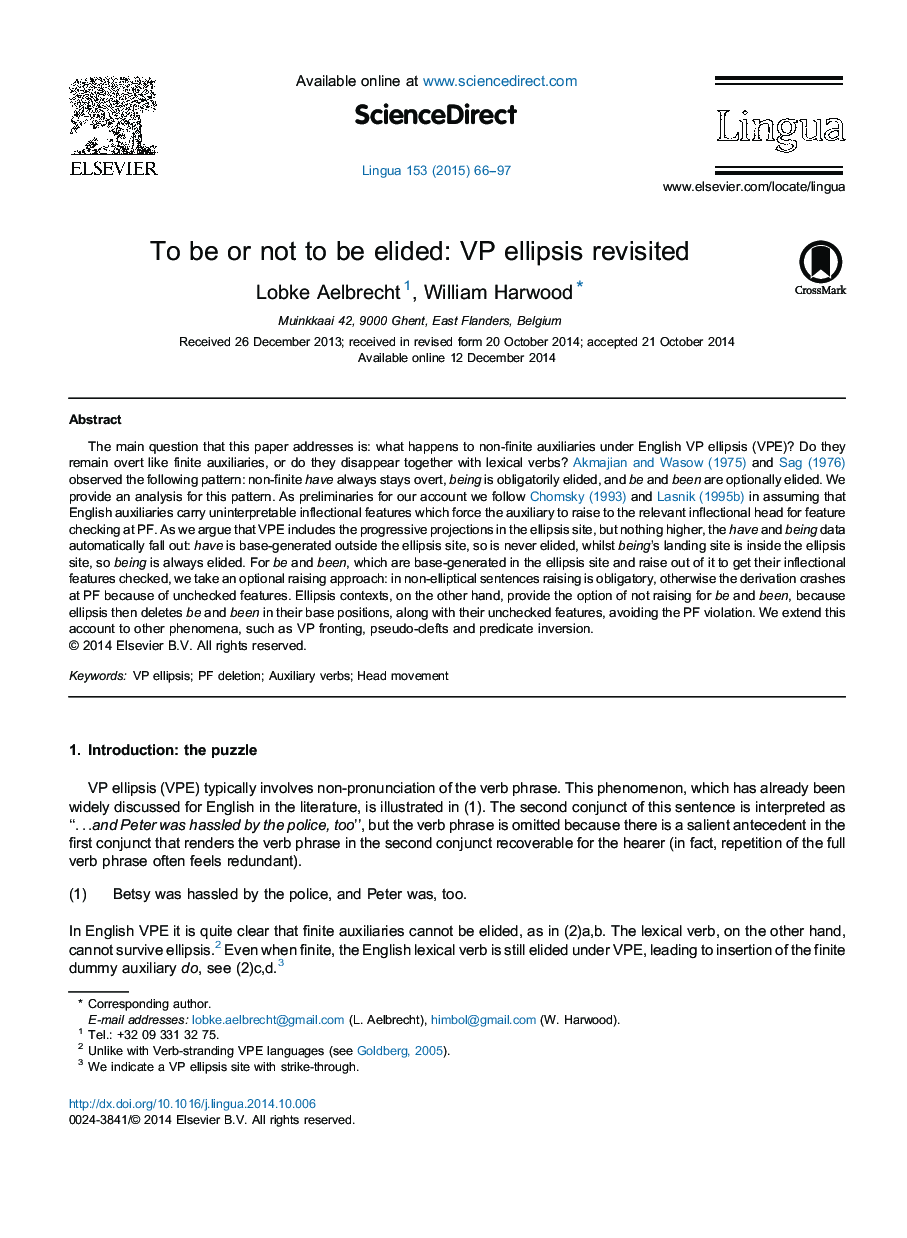| Article ID | Journal | Published Year | Pages | File Type |
|---|---|---|---|---|
| 935379 | Lingua | 2015 | 32 Pages |
•Aim: to account for the auxiliary deletion paradigm under English VPE.•Analysis: VPE targets the progressive aspectual layer vPprog in English.•Being is always elided: it never raises out of the ellipsis site.•Have is never elided: it is base-generated outside the ellipsis site.•Be(en) is optionally elided: it raises out of vPprog or is deleted by ellipsis.
The main question that this paper addresses is: what happens to non-finite auxiliaries under English VP ellipsis (VPE)? Do they remain overt like finite auxiliaries, or do they disappear together with lexical verbs? Akmajian and Wasow (1975) and Sag (1976) observed the following pattern: non-finite have always stays overt, being is obligatorily elided, and be and been are optionally elided. We provide an analysis for this pattern. As preliminaries for our account we follow Chomsky (1993) and Lasnik (1995b) in assuming that English auxiliaries carry uninterpretable inflectional features which force the auxiliary to raise to the relevant inflectional head for feature checking at PF. As we argue that VPE includes the progressive projections in the ellipsis site, but nothing higher, the have and being data automatically fall out: have is base-generated outside the ellipsis site, so is never elided, whilst being's landing site is inside the ellipsis site, so being is always elided. For be and been, which are base-generated in the ellipsis site and raise out of it to get their inflectional features checked, we take an optional raising approach: in non-elliptical sentences raising is obligatory, otherwise the derivation crashes at PF because of unchecked features. Ellipsis contexts, on the other hand, provide the option of not raising for be and been, because ellipsis then deletes be and been in their base positions, along with their unchecked features, avoiding the PF violation. We extend this account to other phenomena, such as VP fronting, pseudo-clefts and predicate inversion.
